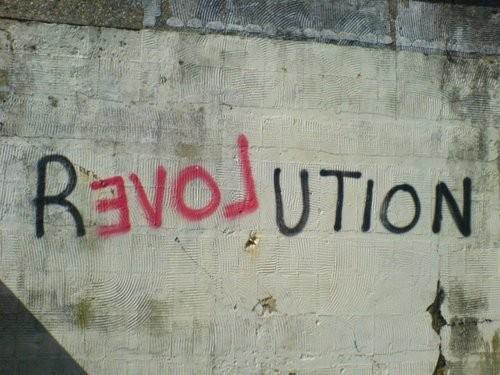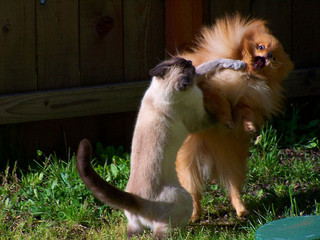 For those who have been reading our blog for some time, you’ve probably noticed two things we value (at least I hope you have!) – young people being able to make informed decisions and our personal faith – mainly expressed through living out love for all the young people we meet.
For those who have been reading our blog for some time, you’ve probably noticed two things we value (at least I hope you have!) – young people being able to make informed decisions and our personal faith – mainly expressed through living out love for all the young people we meet.
We’ve posted before about personal and professional values. How do you find that line? Are they one in the same? Can they overlap? Should they always be separate – especially if they push you to go above and beyond for the young people you are serving?
Today’s post is my own personal story about my personal and professional values. I’m not gonna lie – it’s a little bit of therapy for me. Despite that, I hope that you find it helpful for you in some way, whether it helps you reflect on your own situations and practice or helps you identify some of your own person feelings when it comes to youth work. Maybe it will help you know you’re not alone if you struggle with some of the same things I do.
For over a year I’ve been mentoring a young lady, we’ll call her ‘Anne.’ She is a beautiful young girl, inside and out. And she’s had it hard. Her sister passed away in the fall. Her sister was young and left behind two beautiful children. Anne’s family is very large and she has many siblings, and now, her nephews also live with her. Additionally, she started high school in the fall, a challenging transition for anyone, not to mention a teenage girl in grief.
I have gone from mentoring Anne to being a part of the family. We spend free time with them, we eat together, we laugh together and we cry together. I’ve even had the children stay the night to give mom a break. However, I’m also still Anne’s mentor which can create some tricky boundaries, particularly with mom. I want mom and I to be a team when it comes to Anne, but I don’t want to overstep my boundaries and yet, I’m so involved I can’t turn away – I love them too much and they are like family. My professional values dictate a certain level of professional distance. My personal values are to love, no matter how messy, how complicated, how confusing… just love like I’m called to, like I believe others have done for me.
I came into Anne’s life to try and help her through the sickness and passing of her sister. We’ve spent time together. We’ve had heart to hearts and fun – laughter and tears. We tried to get her on some trips and then just to finish the 9th grade. It has been a year of ups and downs. For every step Anne has taken it feels like she then takes six backwards.
Everyone has taken time and offered chance after chance and forgiveness. I’ve come to her home at all hours of the day and night to pick her up, take her friends home, visit, offer comfort, bring treats and surprises, etc. We’ve also had some consequences, like cancelling her service trip this summer due to a lack of school attendance. That in itself was a long agonizing decision – do I take her on the trip even though she’s making bad choices in the hopes that it completely transforms her, or does she have to take some responsibility and have some consequences to her increasingly wild behavior? In the end, I chose the latter with a lot of prayer and advice from other caring youth work professionals and she ended up having to do summer school for missing too much regular school.
Sadly, the behaviors are escalating: violence, skipping summer school, running away, staying out all night, sneaking out and much more. She is always incredibly respectful of me and my role in her life, and yet she hid from me the other day when I came by to pick her up from a very unsafe situation. My professional values say she’s in grief and testing the boundaries but she needs consequences as well. My personal values make me feel like I’m a trained lifeguard choosing to leave her in the ocean while she’s drowning in grief, loss and pain. And yet, I also personally feel hurt. I’ve tried to keep a professional head about it, she’s young I know that and young people do stupid and hurtful things – I know that too.
But she hid from me! The one person who is ALWAYS THERE and hasn’t given up on her. She texted a very out of character, slightly rude text to ME – MS SHAE!!! Doesn’t she know what I’ve done and sacrificed over this year for her and her family?!
Over the last year, she has seen my life very closely – she sees that I try to be who I am no matter where we are or what we are doing. She knows somewhere deep down inside that I love her unconditionally. She has experienced her own life (and seen her mother’s and sister’s lives, as well as those in her neighborhood) and knows what some of the choices she makes can do to her future chances. She has also now seen a very different life – a life without furniture, food security and personal safety.
Professionally, if I believe that young people can be guided to make informed decisions after they’ve seen the options, then I should stand by and / or stand back and let her make the choices she is going to make. And be there to help and support when I can.
Personally, that idea sickens me and breaks my heart. My faith is one of endless pursuit through excessive love, grace and mercy. I want to keep her safe and help her make the best choices, not throw her life away.
And yet, I’m also very tired. Tired of hoping and being let down. Tired of putting myself out there and being hurt. Tired of making plans and guiding and supporting, just to have it thrown in my face.
I also know that goes with the territory of working with high-risk young people – who are my most favorite youth to work with.
So what to do… Do I keep doing what I’ve been doing and hope for some change at some point? Or do I begin to draw back and put my efforts into another young lady who needs care and support and is willing to make changes?
For now, it’s take each day as it comes. Make choices that protect my own sanity and self-care and yet do what I can to love extravagantly I suppose. To continue to wade through the murky grey area that is ‘when personal and professional values collide or overlap’ and to make the best choices I can in light of both.
Question: Have you ever been in a similar situation? If so, what did you do? I’d love to hear your experiences in the comments below.
You can also connect with us by:
- Signing up to receive our posts via email
- Following us on Twitter
- Liking us on Facebook
- Signing up to our RSS feed



 Bullying.
Bullying.